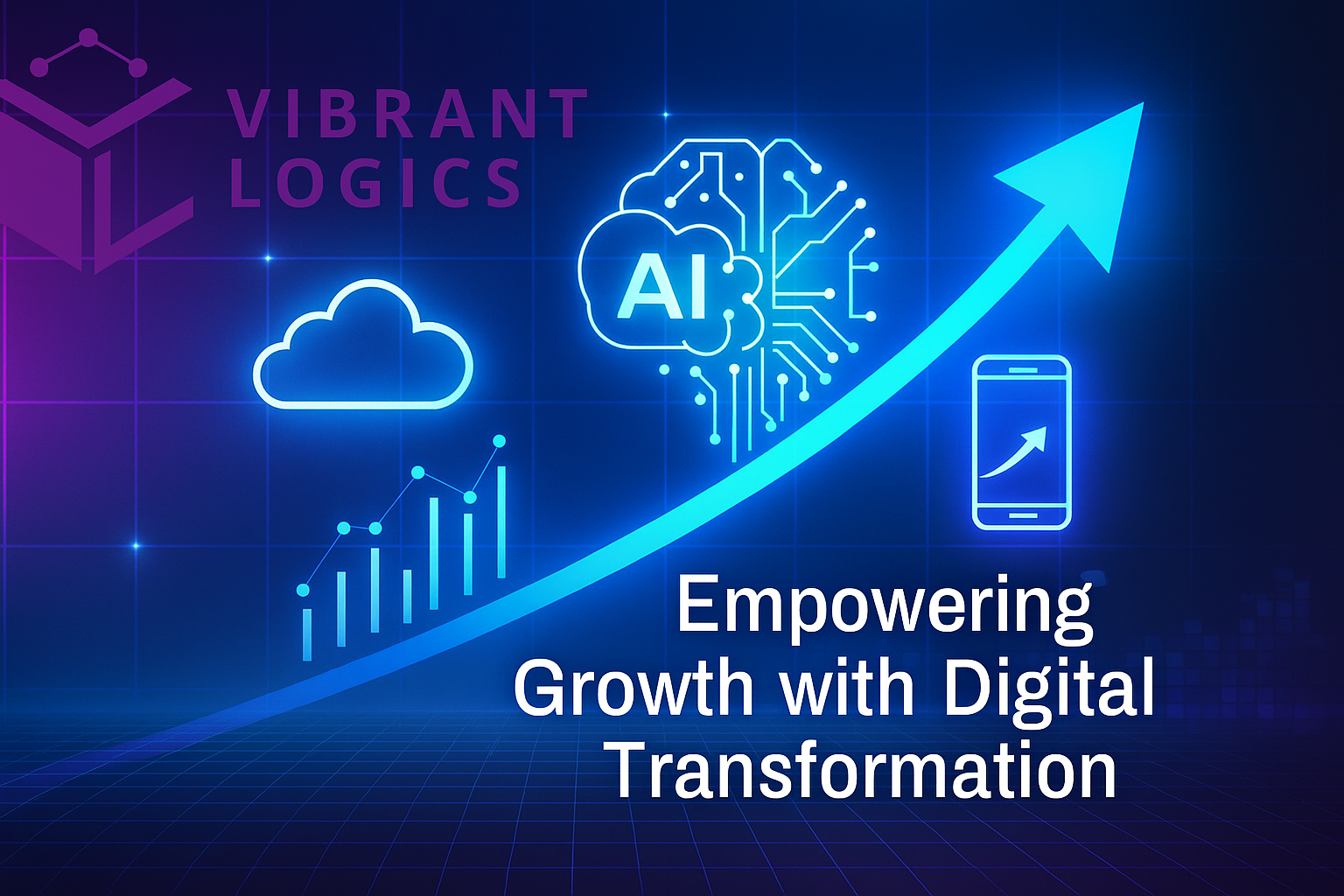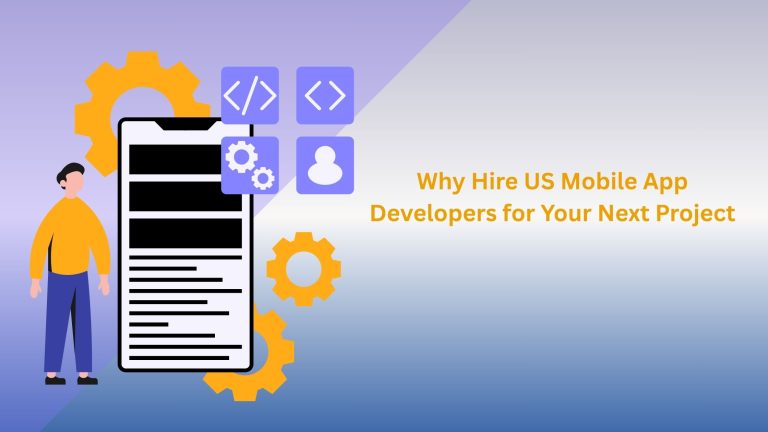Vibrant Logics: Empowering Growth with Digital Transformation
Modern businesses face a critical decision: adapt to digital evolution or risk falling behind competitors. Digital transformation services and solutions have become essential for companies seeking sustainable growth and operational efficiency. The landscape demands immediate action, not gradual change.
Smart organizations recognize that digital transformation extends beyond technology upgrades. It reshapes business models, customer experiences, and operational frameworks. Success requires strategic planning, expert implementation, and ongoing optimization.
What Does Digital Transformation Actually Mean for Your Business?
Digital transformation converts traditional business operations into technology-driven processes that enhance efficiency and customer satisfaction. This involves integrating artificial intelligence, cloud computing, automation tools, and data analytics across all business functions.
The transformation touches every aspect of operations:
- Customer service platforms that provide 24/7 support
- Automated inventory management systems
- Data-driven decision-making processes
- Mobile-first customer experiences
- Cloud-based collaboration tools
Companies that embrace this shift typically see measurable improvements in productivity, customer retention, and revenue generation within the first year of implementation.
Why Are Businesses Rushing Toward Digital Solutions?
Market pressures and customer expectations drive the urgent need for digital adoption. Companies without digital capabilities struggle to compete against tech-savvy competitors who deliver faster, more personalized services.
Customer behavior has fundamentally changed. People expect instant responses, personalized experiences, and seamless interactions across all touchpoints. Traditional business models simply cannot meet these demands without technological support.
Digital transformation services and solutions address three critical business challenges:
Operational Efficiency: Automation eliminates repetitive tasks, reduces human error, and accelerates processes. Manual data entry, for example, can be replaced with intelligent systems that capture and process information automatically.
Customer Experience: Digital tools enable personalized interactions, faster response times, and consistent service quality. Customers can access services anytime, anywhere, through multiple channels.
Competitive Advantage: Early adopters gain significant market advantages. They can launch products faster, adapt to changes quickly, and capture market share from slower competitors.
How Does AI Integration Transform Business Operations?
Artificial intelligence serves as the backbone of modern digital transformation initiatives. AI systems analyze vast amounts of data, identify patterns, and make intelligent recommendations that humans might miss.
Practical AI applications include:
- Predictive analytics that forecast customer behavior
- Chatbots that handle routine customer inquiries
- Automated content generation for marketing campaigns
- Intelligent inventory management systems
- Fraud detection and security monitoring
AI doesn’t replace human workers but enhances their capabilities. Employees can focus on strategic tasks while AI handles data processing, pattern recognition, and routine decision-making.
What Role Does Cloud Technology Play?
Cloud computing provides the foundation for scalable digital transformation. It eliminates the need for expensive on-premises infrastructure while offering flexibility, security, and global accessibility.
Cloud benefits extend beyond cost savings:
Scalability: Businesses can quickly expand or reduce computing resources based on demand. This flexibility proves crucial during growth periods or market fluctuations.
Accessibility: Teams can collaborate from anywhere with internet access. Remote work becomes seamless, and global operations become manageable.
Security: Professional cloud providers offer enterprise-grade security measures that most businesses cannot afford to implement independently.
Reliability: Cloud systems provide better uptime and disaster recovery capabilities compared to traditional infrastructure.
How Can Mobile-First Strategies Drive Growth?
Mobile technology has become the primary interface between businesses and customers. Mobile-first approaches prioritize smartphone and tablet experiences, recognizing that most users access services through mobile devices.
Successful mobile strategies focus on:
- Fast-loading, responsive websites
- Intuitive mobile applications
- Mobile payment systems
- Location-based services
- Push notifications for customer engagement
Companies that prioritize mobile experiences see higher customer engagement rates, increased sales conversions, and better customer retention metrics.
What Makes Data Analytics Essential?
Data analytics transforms raw information into actionable business intelligence. Companies can make informed decisions based on customer behavior, market trends, and operational performance rather than relying on assumptions.
Analytics applications include:
- Customer segmentation for targeted marketing
- Performance tracking across all business functions
- Market trend identification
- Risk assessment and mitigation
- Revenue optimization strategies
Real-time analytics enable immediate responses to changing conditions, giving businesses competitive advantages in fast-moving markets.
How Do You Choose the Right Digital Transformation Partner?
Selecting the right technology partner determines transformation success or failure. The ideal partner combines technical expertise with industry knowledge and proven implementation experience.
Key selection criteria include:
- Portfolio of successful transformations in similar industries
- Comprehensive service offerings that cover all transformation aspects
- Ongoing support and maintenance capabilities
- Transparent communication and project management processes
- Flexible engagement models that adapt to your business needs
Avoid partners who promise unrealistic timelines or guarantee immediate results. Genuine transformation requires time, planning, and iterative improvements.
What Results Can You Expect?
Digital transformation delivers measurable business improvements across multiple dimensions. Companies typically experience enhanced operational efficiency, improved customer satisfaction, and increased revenue within the first implementation phase.
Common outcomes include:
- Reduced operational costs through automation
- Faster decision-making through real-time data access
- Improved customer retention through better experiences
- Increased employee productivity through streamlined processes
- Enhanced market responsiveness through agile systems
Success requires commitment to ongoing optimization and adaptation. Digital transformation is not a one-time project but a continuous evolution.
Conclusion
Digital transformation has evolved from optional upgrade to business necessity. Companies that delay adoption risk losing market position to more agile competitors. The key lies in partnering with experienced providers who understand both technology capabilities and business requirements.
Ready to transform your business for the digital age? Vibrant Logics specializes in comprehensive digital transformation that drives real results. Our team combines cutting-edge AI technology with proven business strategies to help companies achieve sustainable growth. From custom application development to intelligent automation solutions, we deliver the tools your business needs to thrive in today’s competitive landscape. Visit vibrantlogics.com/digital-transformation to discover how we can accelerate your digital journey and unlock new opportunities for success.








